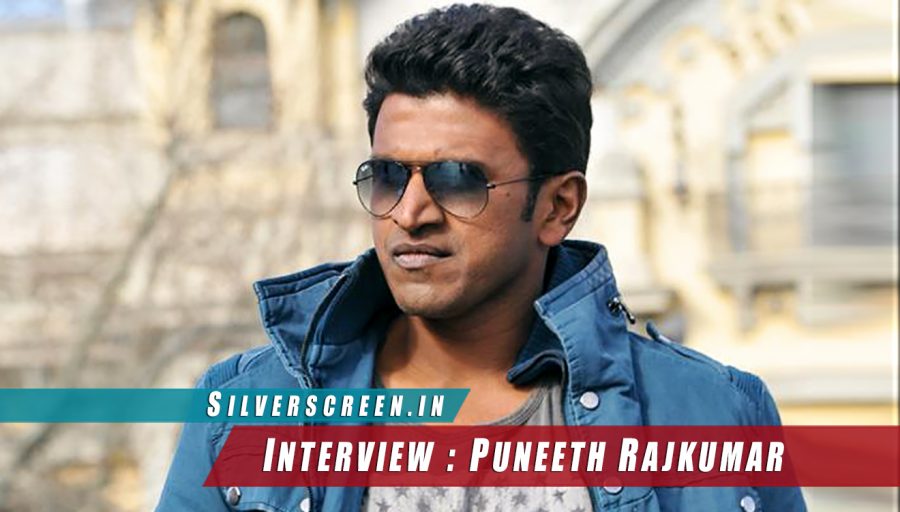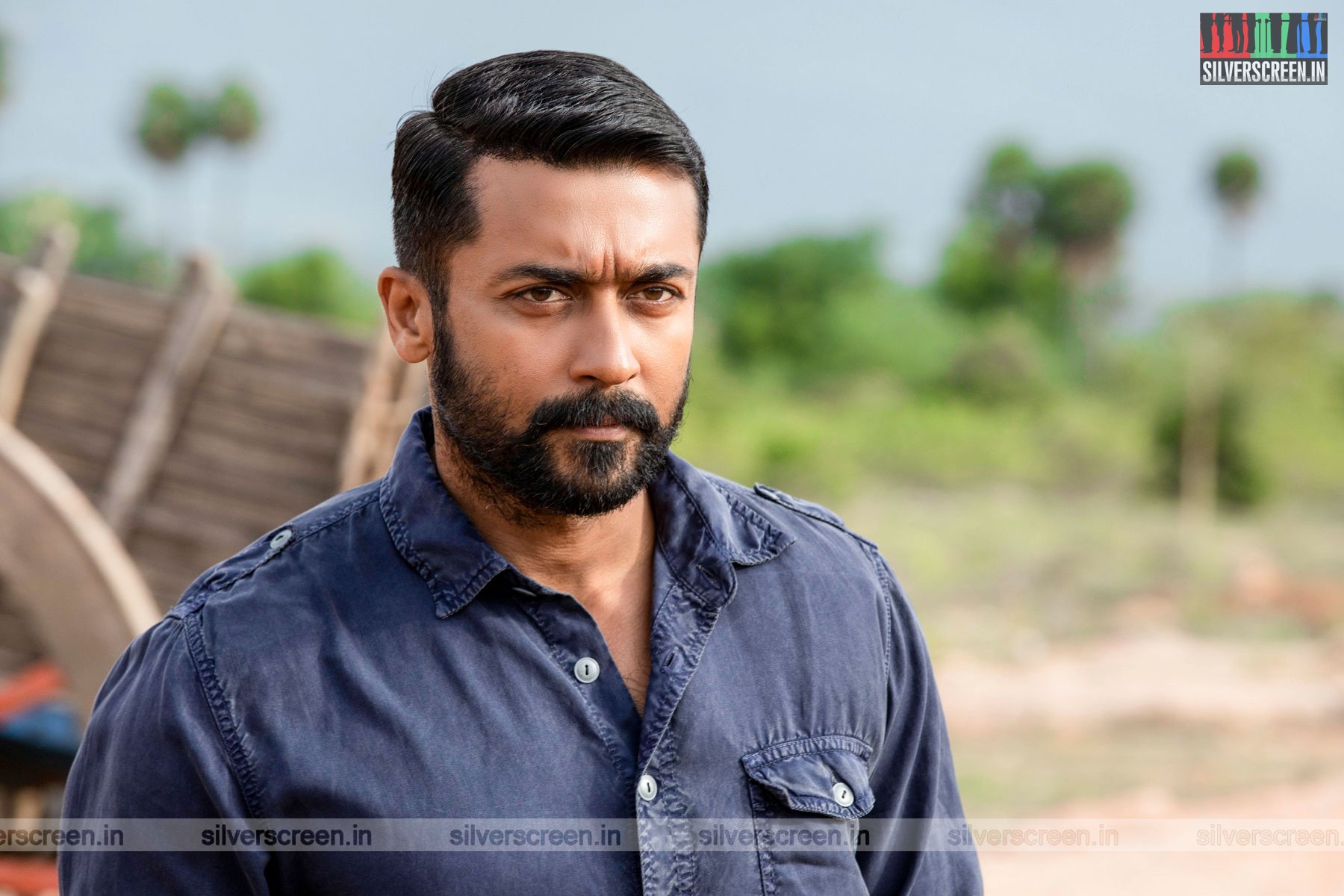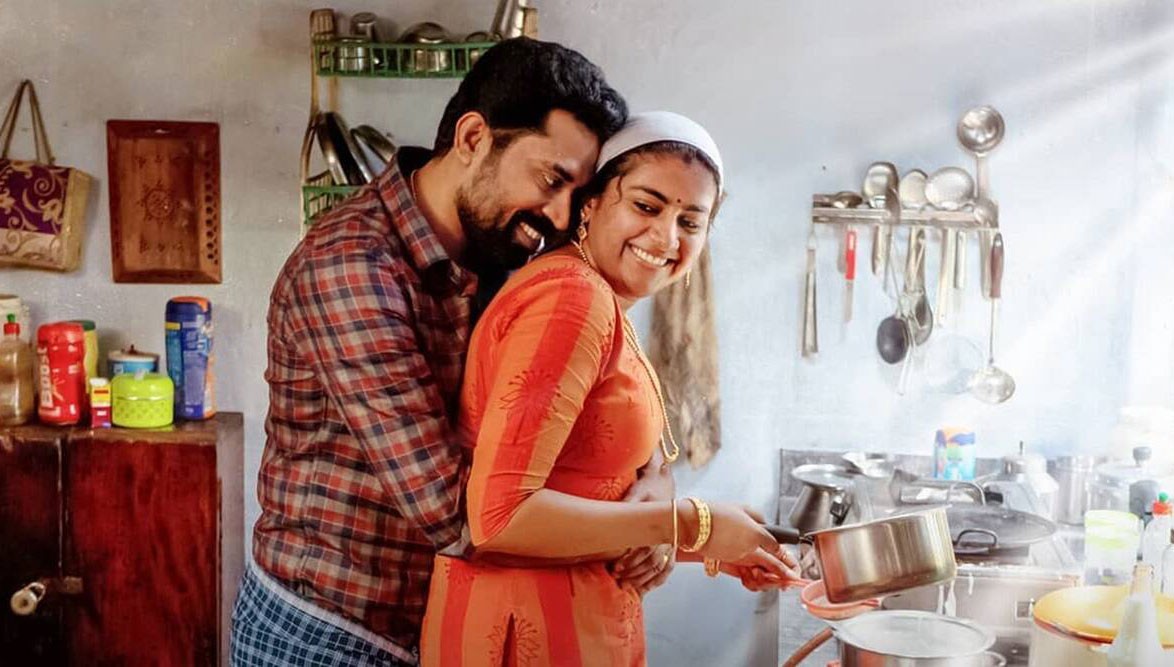Puneeth was destined for a career in cinema. As an infant (barely six months old), Puneeth (then Lohith) went from his mother’s arms to that of his father’s. Onscreen, no less.
“I don’t have any memories of this event. But everybody tells me that I was a natural!” Puneeth laughs.
Six months later, Puneeth was in his second film. “By all accounts, I was the best behaved on set. I ate on time, smiled on time, even cried on time. I didn’t need Glycerin at all. All they needed to do was pinch me.”
He’s joking, of course. As Rajkumar’s third and youngest son, Puneeth was handled like porcelain. But he does remember how this special treatment irked him. “There was this palpable feeling of being apart from the rest. It wasn’t even because of me. It was because of who I was related to. I was too young to make sense of it all, but I remember feeling guilty.”
*****
The special treatment continues to this day, naturally. In modern-day Karnataka, Rajkumar is a revered figure. Statues, photos, and paintings of the actor can be found everywhere. There’s even that ultimate sign of demi-god status – a temple dedicated to him. Ardent fans can be spotted worshipping a bust of their screen idol.
After all, Rajkumar’s family is the unofficial first family of Sandalwood. And as the youngest of this family-of-five, Puneeth was doted upon, “I was born at a time when my father was already an established star. So he had much more time for family. He used to take me along when he was required to travel, and I am blessed indeed to be able to watch him up close and personal for so long.”
Puneeth takes his father’s quasi-divine status very seriously. In fact, Puneeth is at pains to explain why this means that his is not a charmed life. “Most of my life, I have felt like I am playing catch-up with my father’s achievements. When he was my age, he’d done a hundred films. He’s left behind a legacy that is hard to emulate. My brothers and sisters are all, in their own way, exceptional people. They’ve all been part of things, done things and accomplished things by the time I was a teenager. Even now, they’re all leagues ahead of me. I always feel like I’m behind somehow.”
It left Puneeth conflicted about his life. Despite a successful career as a child actor, he didn’t want to commit to a lifetime of acting, “When I was just out of my teens and I had to make a serious decision, I didn’t feel much like acting. Everybody else was doing it, and doing it well. I wanted to do something new so badly.”
This desire to prove himself in a completely unexplored field brought him to the world of commerce. Looking back, Puneeth refers to this period in his life as the ‘lost years’. “There was nothing I didn’t do. Coming from the kind of background I did, there was this fear of being labelled as the wastrel son of a rich father. I did not want to stay true to that stereotype. So, I tried to tough it out on my own. My parents didn’t understand this need, but they supported me nonetheless.”
His father was a great support during this time, Puneeth says. “He believed in letting people go their own way. There was never any overt guidance or interference from him in any of the personal decisions we made. He’d step in and offer support, that’s it. In many ways, he was the most chilled out father ever.”
*****
In 1999, he married his best friend Ashwini Revanath. In 2002, when he was 27, Puneeth made his acting debut with a leading role in Appu.
In all that time, Puneeth had shied away from acting. But when he announced his decision to act, nobody was surprised. It was as if everybody else had known he was destined for it. “Nobody else seemed too shocked. They all accepted it for what it is. Fate. Destiny.”
Puri Jagannadh directed him in Appu. It was the commercial, masala rendition of the classic boy-meets-girl story. Puneeth did a lot of dancing around trees and performing stunts in lurid shirts.
Appu was produced by Puneeth’s mother Parvathamma, and was a family production in every sense. His brother, actor Shivrajkumar picked the film’s title (‘Appu’, incidentally, is Puneeth’s nickname). His wife Ashwini designed his clothes in the film. And the rest of his family were involved in production.
“I never felt like I’d stepped out of the house. I’d wave goodbye to my brother at home, and then find him waiting for me on set. It was crazy, in a good way. They showed up for me when I really needed them, and that gave me the confidence to go on.”
Showing up is something the Rajkumar clan takes seriously. At an early age, the children were cognizant of their responsibilities as public figures. They routinely use their star power to fuel support social causes. Puneeth endorses a number of charities, and promotes Karnataka State’s welfare schemes without any remuneration. “It’s my way of saying thanks to the people who made our family, our life what it is today,” Puneeth says, with more than a touch of humility.
*****
Some parts of his story are more obscure. In his version (and that of every bleeding-heart Rajkumar fan), the darker, grittier segments that make up normal life are whitewashed. And so, Puneeth’s story begins at childbirth, onto his years as a successful child star, and fast forwards to his debut with Appu.
In his public persona, the intervening years find little mention.
“It wasn’t some deep, dark phase, let me assure you. Truth it, it is too boring for me to share. In life, there are periods of time that go by in the blink of an eye. Those 13 years were like that. It was the time when I really internalised a lot of things. My father went missing. I got married. Two such huge things happened to me, and I had to cope with it. I think I deliberately forgot that period because much of it was upsetting.”
In December 2000, Outlook reported that many government officials believed that the kidnapping of Dr Rajkumar by Veerappan was tied to Puneeth. Puneeth allegedly owed the granite mafia a huge sum of money, a fact that the influential Rajkumar clan hushed up.
As expected, Puneeth is none too pleased to be reminded of such details. “No comment,” he says, his tone brusque.
*****
In Doddamane Huduga, Puneeth’s latest release, he teams up with his favourite director Duniya Soori for the third time. It is his 25th film as the male lead and his 39th film overall. But the numbers don’t impress Puneeth. “I’m sure my father and brother did more at the same time,” he says.
The film’s title is a play on his real-life status as the son of a big house. Translated, the title means ‘Periya Veettu Magan’.
For fans of Puneeth though, it is not quantity that matters. His recent films have been disappointing, and the frustration has become palpable. Some described it as “professional hara-kiri” when he chose to do Chakravyuha with director M Saravanan. The film was a remake of Ivan Vera Mathiri, and suffered the same fate as the Tamil original. According to journalist and fan, remaking a bad film that succeeded at the box-office would have been forgivable. But to remake “tripe that also failed at the box-office” was “flabbergasting”.
Puneeth however remains unfazed by criticism. “I am not infallible. I am human, and I make mistakes. I choose films and projects instinctively. Most of the time, it works out to my favour. Some times, it doesn’t. I try not to take it personally. But I do feel bad for the disappointment I cause my fans, and that I’ll rectify soon.”
Recommended
His next is Rajakumara, another play on his legacy. After so many films, why does he still find it necessary to trade on his father’s name? “The easy answer would be – because he’s my father. If I or my family doesn’t do this, then who will? This is not an attempt to garner publicity, but a way to keep his memory alive,” Puneeth says.
The film has Sarath Kumar in a major role. Priya Anand plays the female lead. There’s also a film with Gautham Menon in the pipeline, with Prithviraj, Ram Charan, STR, Tamannaah and Anushka in the lead cast. Given Puneeth’s status as an icon for Kannadigas, and the recent, virulent animosity between Tamil Nadu and Karnataka, it will be interesting to see how the film plays out.
As expected, Puneeth chooses to play safe. “I’m sure everything will be worked out by then,” he says optimistically.
The quietly confident way he says it, one is almost certain it will.
*****



